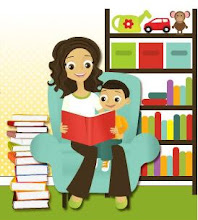
I came across an article in the Washington Post today that brings to the forefront the debate on the value of play. The article suggests that this debate has been ongoing among early childhood educators...but I wonder if this is really true. Somehow I believe that most early childhood educators know, value, understand, and respect the important role that play has in the preschool classroom. I think the debate about the value of play is one that some parents and legislators have. Legislators want children to pass tests, parents want children to be successful in school (i.e. to pass tests), so early childhood educators find themselves in a position of having to defend why play is such an integral part of our curriculum. The debate really isn't one among early childhood educators, it really is a debate that we have with the rest of the world!
The Post article recognizes that the debate about play really becomes an issue when schools are placed in a position of having to achieve certain benchmarks of federal legislation. With three and four year olds increasingly being integrated into public school programs, they are at the mercy of testing methods that are inadequate or inappropriate for their developmental ability.
The article quotes Education Secretary Arne Duncan who spoke at the NAEYC conference: "If we are to prevent the achievement gap and develop a cradle-to-career educational pipeline, early learning programs are going to have to be better integrated with the K-12 system." I couldn't agree more! But it seems now, that young children are expected to assimilate into an already existing K-12 system instead of having that system reworked to accommodate the unique needs and learning styles of young children. We all learned in preschool that you can't fit a round peg in a square hole... well, maybe you only learned this if you went to a school that valued play and exploration.
The Post article points to research that suggests what early childhood educators already know: young children who have a chance to play and explore have better social skills and reasoning ability, both of which are predictors of future school success. Surely, we have some significant improvement to make in the world of early childhood education: higher training requirements, more communication with the K-12 system, and more training for teachers of high-risk or ESL preschoolers. But the answer is does not lie in creating a society of children who can pass tests but cannot think creatively. We have to start the discussion and kudos to the Washington Post and Education Secretary Arne Duncan for starting the conversation (again)!




























